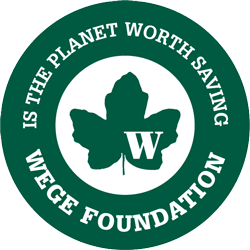The Wege Foundation’s Grants Policy, as amended on April 23, 2020, established four “pillars” and established target grantmaking allocations for each of these topics of interest: Revised – December 09, 2022
- Arts & Culture (20%)
- Environment (35%)
- Education (25%)
- Community Health & Wellbeing (20%)
In addition, The Wege Foundation has long embraced certain cross-cutting themes applicable to all four pillars, such as requiring LEED certification for capital grants and a commitment to helping the under-resourced and marginalized. The Foundation has clarified these cross-cutting themes and developed results-oriented goals for each of the pillars to focus its grant making, provide better guidance to potential applicants and enhance evaluation.
As with the grantmaking allocations among the pillars, these themes and goals are intended as “targets” to guide the Grants Committee and staff in recruiting and reviewing grant applications. The Foundation will continue to be flexible and strategically opportunistic in funding initiatives that forward Mr. Wege’s goal that Grand Rapids become “the best medium-sized city in the United States” and that export effective programs from Grand Rapids to other communities.
CROSS-CUTTING THEMES
(Applicable to all pillars)
THEME #1 – DIVERSITY, EQUITY & INCLUSION: Implement the Foundation’s “Diversity, Equity & Inclusion Policy” with respect to all pillars and all grantees.
THEME #2 – CIVIC ENGAGEMENT: Foster civic engagement[1] through grantees that intentionally and systematically develop in the individuals they serve the combination of knowledge, skills, values, and motivation to make a difference in civic life and policy choices.
THEME #3 – ENVIRONMENTAL SUSTAINABILITY: Encourage, support and educate grantees to demonstrate environmental responsibility by rigorously tracking, taking into account and seeking to eliminate or minimize the adverse environmental impacts of grantees’ programs, activities, facilities and operations and by inculcating values of and educating about environmental stewardship the people they serve, including their board, staff, volunteers, vendors, collaborators, partners, constituents and beneficiaries of their programs.
THEME #4 – ORGANIZATIONAL SUSTAINABILITY: Encourage grantees to achieve organizational sustainability through a clear mission; thoughtful long-term planning and near term implementation; outstanding board and staff leadership; effective use of volunteers; diverse, robust and stable revenue streams; creative fundraising programs expanding their donor base; rigorous budgeting and financial controls; effective collaboration and partnerships; and satisfied beneficiaries of programs and services.
